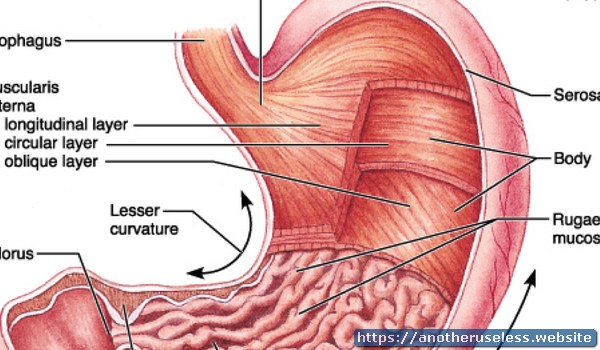Your stomach has to produce a new layer of mucus every two weeks otherwise it will digest itself

Your Stomach’s Remarkable Self-Protection Mechanism

Have you ever wondered how your stomach can withstand the harsh digestive acids it produces? Without the body’s intricate defense systems, the stomach could potentially digest itself. It’s fascinating to know that your stomach’s ingenious solution to this problem is to produce a fresh layer of mucus every two weeks. This perpetual mucus production serves as a protective shield, preventing your stomach from experiencing self-digestion.
But why does the stomach need this constant restoration, and how does the mucus truly save it from harm? Let’s dive deeper into this intriguing fact.
The inner lining of the stomach, called the gastric mucosa, is composed of millions of tiny glands. These glands produce gastric juices, including hydrochloric acid, an extremely potent acid responsible for breaking down food. While essential for digestion, this acid can also cause damage to the stomach’s delicate tissues.
Here comes the extraordinary role of mucus. The stomach lining is covered with a thick layer of gel-like mucus, acting as a protective barrier against the corrosive effects of gastric acids. This mucus layer shields the stomach’s mucosa from direct contact with the acid, preventing any potential harm.

The mucus itself is a remarkable substance. It is rich in a protein known as mucin, which gives it its slimy consistency. Mucin possesses adhesive properties, allowing it to form a cohesive barrier over the stomach’s mucosa, sealing it off from the acid. It also acts as a lubricant, facilitating the smooth passage of food through the digestive system.
What makes this fact even more astonishing is the continuous renewal of the mucus layer. The stomach, recognizing the high turnover of mucus, diligently produces a fresh layer every two weeks. This process ensures that the protective shield remains intact and fully functional.
The production of mucus is regulated by various factors, including hormones and nerves. Hormones like prostaglandins stimulate mucus secretion, while nerve impulses triggered by the act of eating also contribute to the process. Together, these mechanisms ensure the stomach’s sustainability and self-protection.
It is crucial to maintain a healthy balance of mucus production, as a disruption in this process can lead to gastric complications. Certain medications, such as non-steroidal anti-inflammatory drugs (NSAIDs), may interfere with mucus production, increasing the risk of stomach ulcers and damage.
In conclusion, the continuous production of a new layer of mucus every two weeks is a vital function for the stomach to prevent self-digestion. The mucus acts as a protective shield, guarding the delicate stomach lining against the corrosive effects of its own digestive acids. This remarkable self-protection mechanism ensures the stomach’s well-being and enables us to enjoy our favorite meals without discomfort or harm.
Source: The Guardian
Share
Related Posts
Quick Links
Legal Stuff

